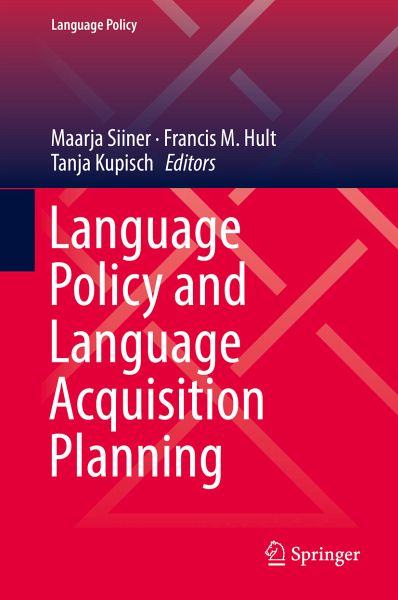
Language Policy and Language Acquisition Planning (eBook, PDF)
Versandkostenfrei!
Sofort per Download lieferbar
112,95 €
inkl. MwSt.
Weitere Ausgaben:

PAYBACK Punkte
56 °P sammeln!
In the sociopolitics of language, sometimes yesterday's solution is tomorrow's problem. This volume examines the evolving nature of language acquisition planning through a collection of papers that consider how decisions about language learning and teaching are mediated by a confluence of psychological, ideological, and historical forces. The first two parts of the volume feature empirical studies of formal and informal education across the lifespan and around the globe. Case studies map the agents, resources, and attitudes needed for creating moments and spaces for language learning that may,...
In the sociopolitics of language, sometimes yesterday's solution is tomorrow's problem. This volume examines the evolving nature of language acquisition planning through a collection of papers that consider how decisions about language learning and teaching are mediated by a confluence of psychological, ideological, and historical forces. The first two parts of the volume feature empirical studies of formal and informal education across the lifespan and around the globe. Case studies map the agents, resources, and attitudes needed for creating moments and spaces for language learning that may, at times, collide with wider beliefs and policies that privilege some languages over others. The third part of the volume is devoted to conceptual contributions that take up theoretical issues related to epistemological and conceptual challenges for language acquisition planning. These contributions reflect on the full spectrum of social and cognitive factors that intersect with the planning of language teaching and learning including ethnic and racial power relations, historically situated political systems, language ideologies, community language socialization, relationships among stakeholders in communities and schools, interpersonal interaction, and intrapersonal development. In all, the volume demonstrates the multifaceted and socially situated nature of language acquisition planning.
Dieser Download kann aus rechtlichen Gründen nur mit Rechnungsadresse in A, B, BG, CY, CZ, D, DK, EW, E, FIN, F, GR, HR, H, IRL, I, LT, L, LR, M, NL, PL, P, R, S, SLO, SK ausgeliefert werden.












